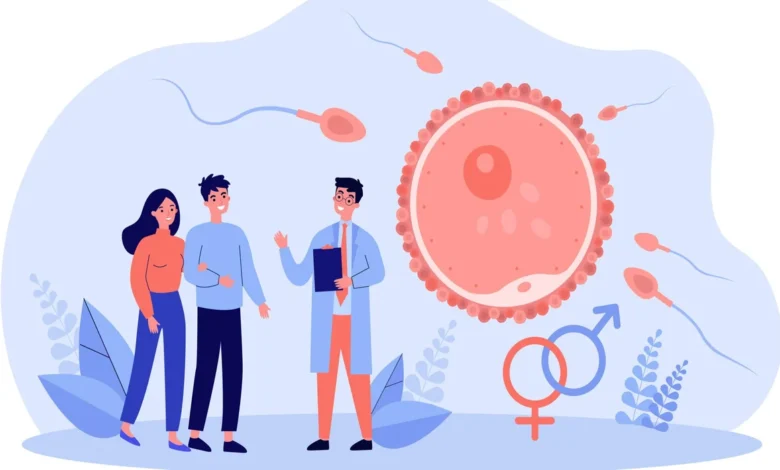The Female Fertility System: Problems & Its Treatments

Do you know The Female Fertility System: Problems & Its Treatments? both internal and exterior organs, including the vagina, cervix, uterus, ovaries, fallopian tubes, and labia, are part of your female reproductive system. Typically, the external components of your reproductive system allow sperm to enter the vagina and protect the interior organs from infections. Your reproductive system is intricately designed, which makes it susceptible to many illnesses and dysfunctions. If you suffer from a problem brought on by unusual swings in reproductive hormones like estrogen, you might require the help of a gynecologist Silver Spring. The endocrine glands or the ovaries may produce and release reproductive hormones irregularly.
Nevertheless, congenital anomalies, genetics, tumors, or infections can also cause you to have diseases or conditions that have an impact on your reproductive system. You could occasionally experience illnesses with no known etiology.
Thus, some typical ailments or disorders that may have an impact on your reproductive system are included below, along with some potential remedies.
Read More: During Pregnancy Ultrasound Scans in 2023
Endometriosis
More than 6 million women in the United States are thought to have endometriosis, according to the US Department of Health & Human Services. The tissue that normally lines your womb is frequently present in other places of your body when you have endometriosis.
Ovaries, fallopian tubes, and other organs including the bladder and colon are frequently impacted by the lining of the uterus.
Your doctor may use hormone therapy, painkillers, or the removal of your ovaries to treat or manage your endometriosis.
Uterine fibroids

Uterine fibroids, also known as uterine myomas, are noncancerous growths that frequently affect the uterus during your reproductive years. Noncancerous muscle and connective tissue growths can be large enough to result in profuse bleeding and excruciating abdominal pain.
By making the required dietary adjustments and employing hormone-regulating drugs, fibroids can be treated conservatively. Avoid meat and calorie-dense foods, and routinely consume foods and beverages that are high in flavonoids. Drink green tea and eat cold-water fish like tuna, salmon, cod, and sardines.
IUDs, oral contraceptives, and iron supplements are further methods for treating fibroids symptoms. Also, if your situation worsens, your doctor might advise fibroid surgery.
Gynecologic cancer
Your cervix, ovaries, uterus, vagina, or vulva could all be affected by cancer.
Even while cancer can begin in only one area of your reproductive system, it has the ability to spread throughout your entire body.
The likelihood of successful therapy is greatly increased if your doctor detects your cancer when it is still little and has not spread.
Surgery, chemotherapy, radiation therapy, immunotherapy, targeted medication therapy, and bone marrow transplant are all possible cancer treatments.
Read More: Zinc Play In Fitness: What Does Role?
Sexually transmitted diseases and infections
If you engage in unprotected sex with someone who has an STD or STI such as chlamydia, genital herpes, gonorrhea, HIV/AIDS, HPV, pubic lice, syphilis, or trichomoniasis, you will become infected.
Infections called STIs or STDs are spread by bacteria, viruses, and parasites.
STDs have no known cures or therapies. However, some therapies might lessen the intensity and symptoms of STDs. On the other hand, your doctor might prescribe antibiotics to treat your STI.
To make an appointment with a gynecologist and learn more about various disorders that could impact your reproductive system, their treatments, and prevention measures, call Capital Women’s Care right away.







